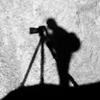Check out Black and White Photography section of our forum.
Sensor Technology - The Past 5 Years
Mar 12, 2015 18:08:38 #
Has it really changed much? Saw an interesting video recently that claimed sensor technology (among ALL brands) has only improved by approximately 0.5 stops of light (in terms of light sensitivity) in the last 5 years. Moreover, technology improvements (like Moore's Law) is also slowing due to the laws of physics.
So when a claim is made that a camera (Sony for example) is 2 or even 3 stops of light more sensitive than a comparable Nikon or Canon camera, is this claim really true? I realize this doesn't mean much to most people... because really, regardless how much light you have and how good sensors become, there is still that "little factor" of photography called talent. :-)
So when a claim is made that a camera (Sony for example) is 2 or even 3 stops of light more sensitive than a comparable Nikon or Canon camera, is this claim really true? I realize this doesn't mean much to most people... because really, regardless how much light you have and how good sensors become, there is still that "little factor" of photography called talent. :-)
Mar 12, 2015 18:17:04 #
mdorn wrote:
Has it really changed much? Saw an interesting vid... (show quote)
Mark, those claims may or may not be true! The BIGGER question is, ARE they important?!?!
How is our photography benefitting from it?
Maybe the gains that ARE made, like Dual Pixel Tech is the better part of improved tech! just saying ;-)
SS
Mar 12, 2015 18:22:17 #
SharpShooter wrote:
Mark, those claims may or may not be true! The BIGGER question is, ARE they important?!?!
How is our photography benefitting from it?
Maybe the gains that ARE made, like Dual Pixel Tech is the better part of improved tech! just saying ;-)
SS
How is our photography benefitting from it?
Maybe the gains that ARE made, like Dual Pixel Tech is the better part of improved tech! just saying ;-)
SS
Yes... that's why I ended my comment with "because really..."
However, some may like to know. As an engineer, I have hard time accepting from someone: "don't worry about that technical stuff, just trust me..." :-)
Can't I know the technical stuff and appreciate that it may not matter much?
Check out Panorama section of our forum.
Mar 12, 2015 19:53:29 #
mdorn wrote:
Has it really changed much? Saw an interesting vid... (show quote)
I've never seen anyone, and most specifically not Sony, claim they have a sensor with "2 or even 3 stops" more sensitivity than the current Nikon or Canon sensors.
There have been many really great advances in sensor technology over the past five years, and that will continue in the future, but none of them are ever going to have even 1 fstop improvement in sensitivity over the current sensors. You can only collect all of the photons, and not more!
Since the release in late 2009 of the Nikon D3S, which has a "quantum efficiency" of 57 percent, it has been impossible to achieve a 1 stop increase. That would require collecting 114 percent of the photons striking the sensor! Since 2009 most sensors have been a little back from that, with the D800 at 56%, the D4 and D600 at 53%, and the D7100 at 52% to list a few examples.
We might expect that gradually they will improve to somewhere between 75 and 85 percent, at the best. So 1/2 a stop, at most.
Mar 12, 2015 20:18:29 #
Apaflo wrote:
I've never seen anyone, and most specifically not ... (show quote)
Yes, this sounds consistent with what I've read. Perhaps I have my facts mixed up about Sony cameras... is it dynamic range that they claim is superior, and if so, by how much? Just curious.
Mar 12, 2015 20:41:14 #
mdorn wrote:
Yes, this sounds consistent with what I've read. Perhaps I have my facts mixed up about Sony cameras... is it dynamic range that they claim is superior, and if so, by how much? Just curious.
http://home.comcast.net/~NikonD70/Charts/PDR.htm#EOS%201D%20X,D4S,A7S,Ideal_FX
Mar 13, 2015 08:26:31 #
Apaflo wrote:
http://home.comcast.net/~NikonD70/Charts/PDR.htm#EOS%201D%20X,D4S,A7S,Ideal_FX
I like interactive charts like that, although I doubt I would consult it before buying a camera. So, shooting at ISO 409,600 would not be the best choice for top quality images. Surprise, surprise. :D
Mar 13, 2015 08:55:14 #
mdorn wrote:
Has it really changed much? Saw an interesting vid... (show quote)
I don't think sensitivity is the thing that is important. I got all the sensitivity I can use. What is important is how well it renders a good image with minimal noise. My 5 year old camera is not up to the same level in that department when compared to newer versions. And this is an area that is not yet limited by physics. It is limited by how well the camera handles the information from the sensor and how well it converts that into a RAW image. Same sensor can be used by two different manufacturers and one can get a lower noise image from that same sensor.
Mar 13, 2015 09:07:22 #
Worrying about that is kind of like farting in a hurricane.
Why not choose your gear based on how it can mesh with your goals in your photography?
I may be a bottom feeder with my D3300, but I decided to open my wallet a little wider at the time of purchase to get it, over a D3200 for the later technology available.
Then never looked back. Just forward to all the possibilities it holds. ;)
Like my Friend Nikon DonB sez, "It is, what it is."
Unless you are manufacturing the sensors, it's a moot point.
Just get what you want at the time.
Why not choose your gear based on how it can mesh with your goals in your photography?
I may be a bottom feeder with my D3300, but I decided to open my wallet a little wider at the time of purchase to get it, over a D3200 for the later technology available.
Then never looked back. Just forward to all the possibilities it holds. ;)
Like my Friend Nikon DonB sez, "It is, what it is."
Unless you are manufacturing the sensors, it's a moot point.
Just get what you want at the time.
Mar 13, 2015 11:28:56 #
JimH123 wrote:
I don't think sensitivity is the thing that is imp... (show quote)
Jim,
Sensitivity is important initially, what is real important is how the image capturing device handles the sensitivity. We have had solid state image sensors that can see in total darkness, the designers simply crank up the applied voltage and force the sensor to amplify the photon conversions higher. Just like our digital cameras, if you crank up the applied voltage you increase the apparent sensitivity, but at the cost of electronic noise.
The electronic noise can be so great that is obscures the target, making the use of these devices intolerable.
To reduce the electronic noise generated in a strapped sensor they cool the sensor with liquid nitrogen. The colder the nitrogen the higher the applied voltage, the more apparent sensitivity is achieved. Up to a physical point where the circuits short out causing massive failure.
The key to sensitivity lies in the material that converts a photon into an electrical pulse. Like a flexible cone transfers sound waves into electrical pulses via a coil of wire over a magnet; we can use a fiber speaker, or a very expensive Microphone for the conversions. It is what we do with the captures and converted energy that determines the apparent sensitivity.
Michael G
Michael G
Mar 13, 2015 12:26:27 #
Apaflo wrote:
... br Since the release in late 2009 of the Nikon... (show quote)
How about if you consider "multiple exciton generation" (MEG), quantum efficiencies of greater than 100% may be achieved. Is this true for sensors ?
Check out Underwater Photography Forum section of our forum.
Mar 13, 2015 12:36:17 #
kavner58
Loc: Portland, Oregon
emmons267 wrote:
How about if you consider "multiple exciton generation" (MEG), quantum efficiencies of greater than 100% may be achieved. Is this true for sensors ?
Not good for light sensing in cameras - you describe a non-linear process. The simple way to increase sensitivity is use large area for a pixel. But then you will not be able to crank more Mpixels in a given total sensor area.
- AK
Mar 13, 2015 12:52:07 #
kavner58 wrote:
Not good for light sensing in cameras - you describe a non-linear process. The simple way to increase sensitivity is use large area for a pixel. But then you will not be able to crank more Mpixels in a given total sensor area.
- AK
- AK
Thanks for the explanation.
Mar 13, 2015 13:22:59 #
Apaflo wrote:
I've never seen anyone, and most specifically not ... (show quote)
Sony will never complain about the Canon or Nikon sensors because Sony makes them
Mar 13, 2015 13:56:37 #
boberic wrote:
Sony will never complain about the Canon or Nikon sensors because Sony makes them
If that is the case, then why does my Canon EOS produce pictures with much greater image quality than my Sony DSC-F717.
If you want to reply, then register here. Registration is free and your account is created instantly, so you can post right away.
Check out Professional and Advanced Portraiture section of our forum.






